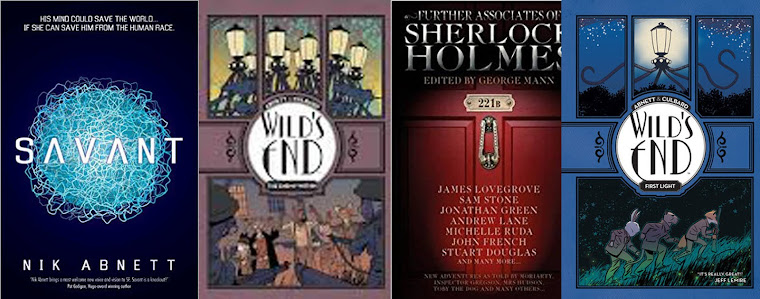It’s always fascinating to look at how other writers write, and Jeanette Winterson gave lots away in her A Life in the Day interview for the Sunday Times last weekend.
She said,
“Around 2, I’ll stop and have a fairly light lunch... then go back to the studio and look over what I’ve typed up. If it’s good I leave it, if it’s not, it gets chucked in the fire.”
I edit every day, too. I usually don’t edit the same day. I generally work through to the evening and read back the following morning, but the principle is precisely the same. I know lots of writers who plough through to the end of a first draft, making no revisions, and then face redrafting an entire piece of work, whether it’s a short story or a novel, in one sitting. I’d really struggle with that. What comes before always seems to inform what follows after, with my work, so I like to make decisions and changes as I go along. I rarely alter very much as I work, but my first draft tends to be fairly definitive.
One day, I’ll tell you about the book that proved the exception to that rule, but it’s a difficult, complex novel for lots of reasons, and it was always going to throw up problems all of its own. I’m working on it again, now.
What baffles me about Ms Winterson’s statement is that line, “It gets chucked in the fire”! It’s utterly brutal, isn’t it? I keep every version of everything I write. I’m not talking about nips and tucks for grammar and spellings and whatnot, but I certainly keep all substantive changes, and I keep all drafts and any significant bits of writing, even if they don’t fit. It’s not even a question that nothing goes to waste; it’s simply that you never know where a new idea will come from or what it will grow out of. There’s also the question of those gorgeous little bits of writing that might not work in any context, but which, nevertheless, have a certain beauty and should, in my opinion, at least, not be lost.
Nothing should be lost.
It took me a long time and a formidable amount of girding of my loins and some serious manoeuvring around my so-called mental health issues for me to be able to fully realise what little talent I might have, and to trust that I could and should write. I wonder if that is why I’m quite so OCD about my writing practices. I’m sure that’s a big part of it.
In some ways, I rather admire Ms Winterson’s apparently cavalier attitude to the work that she considers below par. There will be nothing left behind to show her weaknesses, nothing to archive, nothing to wonder about.
I wonder about that. There is much to learn, I think, from an artist’s sketchbooks or a writers letters, diaries and private papers. I think the study of a series of drafts for any novel by any great writer might be utterly fascinating to the right student.
On the other hand, there is no way to duplicate art, there’s not recipe, no formula, and there are already too many people who believe that creativity can be taught. In the computer age, all too soon, it will be possible to see and examine and test every draft, every change, every nuanced choice an author made on his way to his final draft, and that means that someone, somewhere will want to do it in order to unravel the magic. Someone, somewhere will believe that the magic can be unravelled and can and even should be remastered. I am not one of those people.
I can’t do it, not yet, anyway, but I’m rather pleased that Ms Winterson throws her failures on her fire. Her magic is sealed on the page for all to see, and for some to dissect and study the old-fashioned way with their minds. Not for her the application of an algorithm that will reduce the work to so many words of so many syllables, to sentence structures and lengths, to such and such a configuration of paragraphs or characters or whatever it happens to be.
Perhaps we could all take a leaf out of her book... and start our own conflagrations.

I can't imagine throwing drafts away. From my commercial short story days, I never scrapped anything, I might use it for something or take something from it. Even Secrets came from an earlier (rubbish) story, I just took the bit I liked most from it and a couple of characters and rewrote. I love Winterson's books though, they make me sit up and write better. Perhaps I should read Oranges again...
ReplyDeleteyurtdışı kargo
ReplyDeleteresimli magnet
instagram takipçi satın al
yurtdışı kargo
sms onay
dijital kartvizit
dijital kartvizit
https://nobetci-eczane.org/
CRY
salt likit
ReplyDeletesalt likit
dr mood likit
big boss likit
dl likit
dark likit
WZAZKA